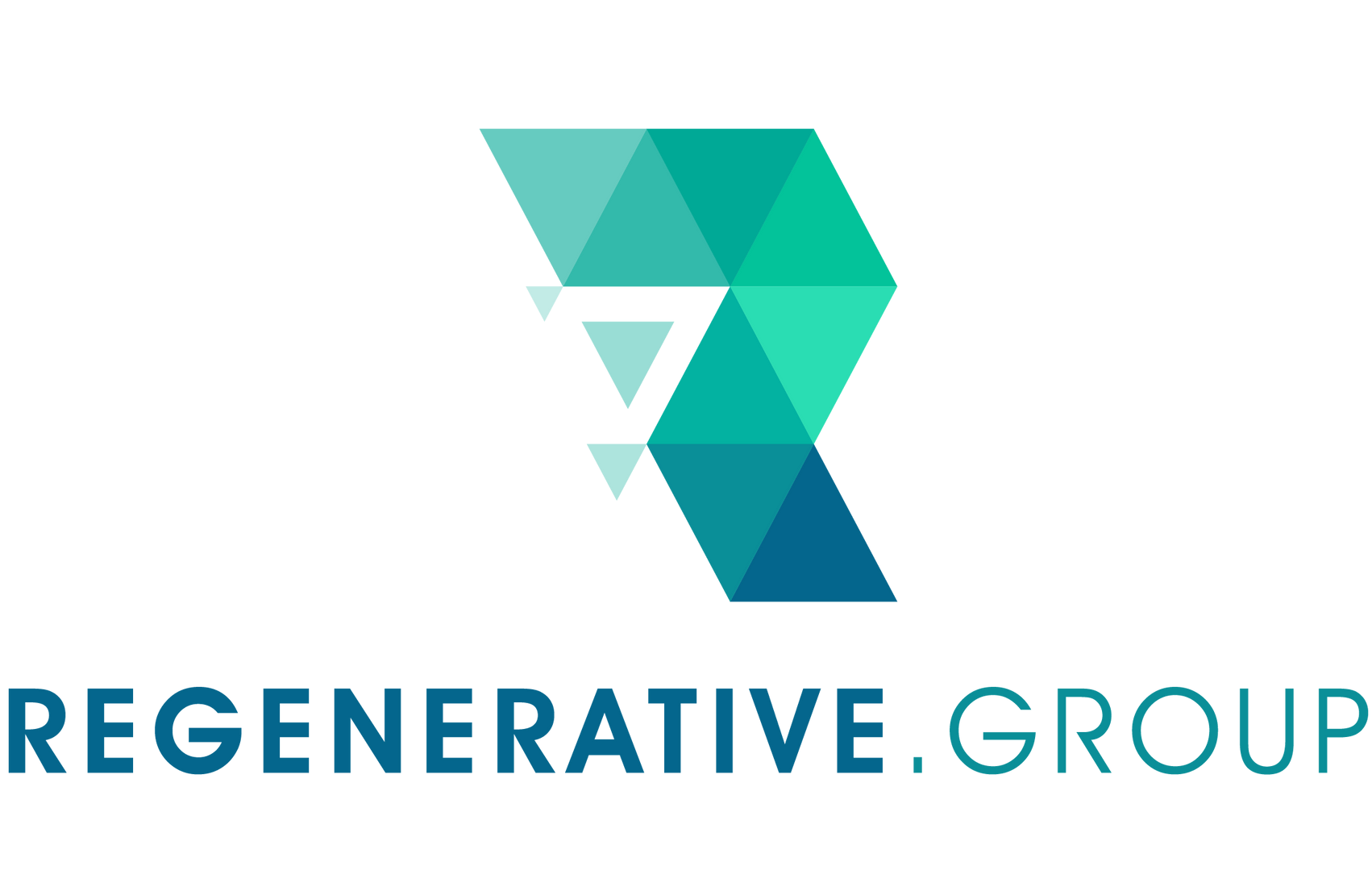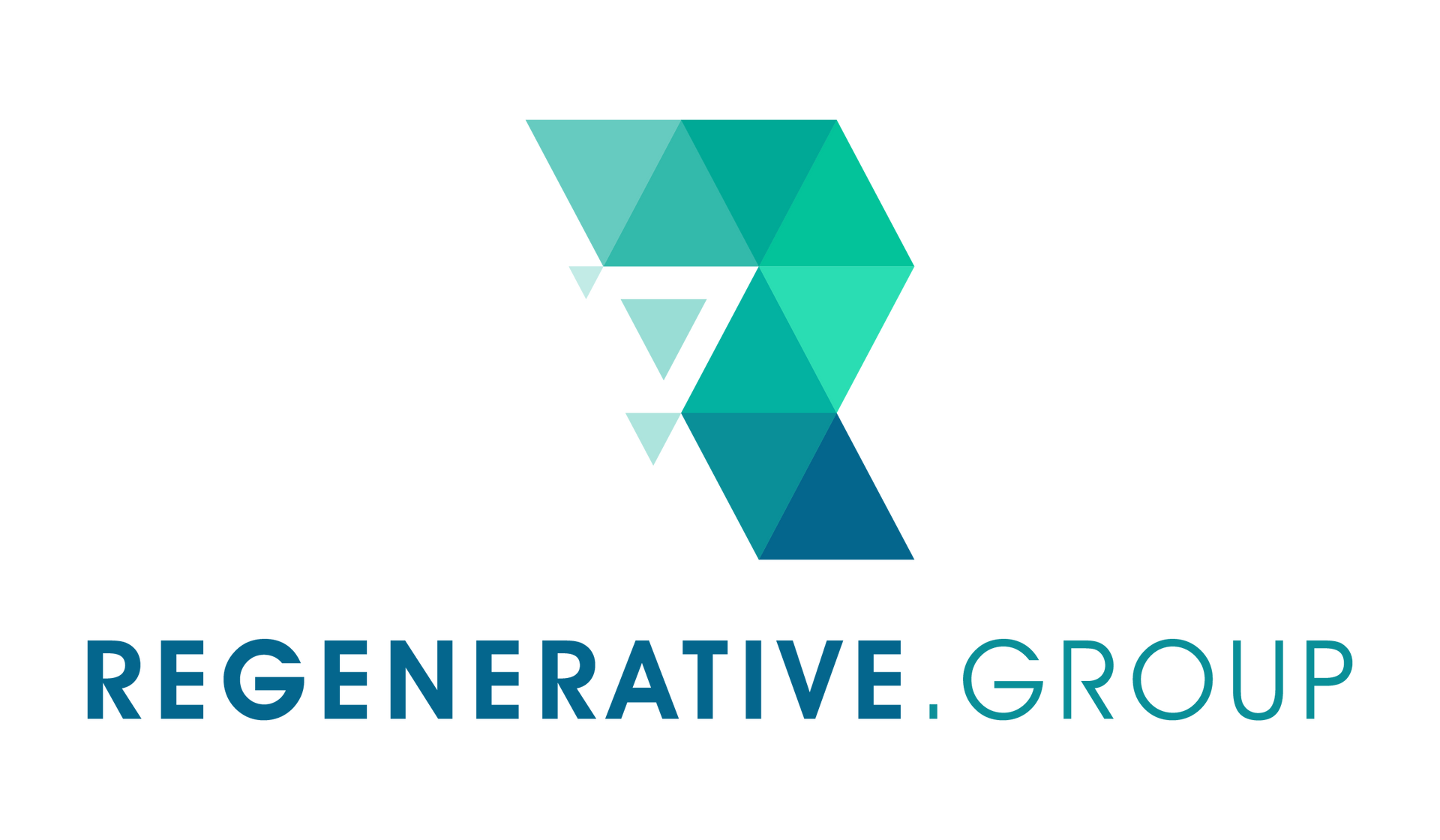The Rise Of Conscious Capitalism
Louis Gagnon • February 4, 2023
Reproduction of an article published by Louis Gagnon on Sep 20, 2018 in Forbes magazine

I went to college in the late '80s and early '90s, a period during which free-market capitalism triumphed, economic integration exploded and corporations got consecrated as the most effective vehicle to make things happen. Michael Porter's book The Competitive Advantage of Nations made us realize that the role of the nation-state in planning the economy was fundamentally shifting from building national champions to enabling multinational corporations (MNCs) to form synergistic clusters. MNCs, led by a new class of business entrepreneurs, were going to be the ones building the global economy, and governments would be well-advised to create the conditions for MNCs to create wealth in their territories.
In that new world, global financial markets exploded, market efficiency theories acquired quasi-religious status and business entrepreneurs became our high priests. This was the golden boys' era: Michael Douglas's Gordon Gekko in Wall Street was the ultimate role model, while Bill Gates and Steve Jobs were emerging as the wise men who could predict the future. The system had a simple rationale: The entrepreneurs’ exclusive focus on providing return to shareholders would create an endless flow of investments, and the corresponding economic growth would, in turn, create better-paying jobs that would lift up all boats.
It seemed like a good idea and worked amazingly well in many regards. Childhood death has fallen by 50% since 1990. The global economy has been successful in eradicating extreme poverty from 42% of the world's population in 1981 to only 10% by 2013. Facebook, YouTube and Spotify remind us of the existence of a new “global citizenry” in which people easily discover the best (and worst) the world has to offer.
For all of its successes, we now know that free-market capitalism achieved shareholders' returns at the expense of Mother Earth, employees and local communities. For me, not considering those stakeholders exemplifies unconscious capitalism because it's unsustainable. Consider this, 30 years after Reagan and Gorbachev ended the Cold War:
• 1% of American households own 40% of the country's wealth.
• Inflation-adjusted wages received by the typical worker have barely risen, affecting the middle class disproportionally.
• The U.S. social safety net, including employer-guaranteed pensions and health insurance, is broken.
• Total U.S. consumer credit card debt has reached its highest point ever, surpassing $1 trillion in 2017.
• Climate change is now a blatant reality across the planet.
• Water scarcity currently affects 40% of the global population, according to the United Nations.
• The global mental health crisis, the top global issue at Davos in 2018, coincides with the fact that 47% of teenagers and 32% of adults are addicted to their devices.
It is in such context that, in 2010, conscious capitalism became a movement. In short, the idea behind conscious capitalism is that capitalism, in and of itself, must change if it is to prevail as an economic system. It argues that prioritizing the interests of shareholders above all other stakeholders can no longer work. It demands corporations use their resources more wisely. It requires that all stakeholders be truly considered in decision-making.
Conscious Capitalism Is Demanded By Our Employees And Consumers
Conscious capitalism is mainly driven by the consciousness of employee-consumers who understand that our current economic system has failed them. You don't need to be an expert to know that droughts, forest fires, hurricanes, flash floods, growing economic disparities and checking devices 80 times per day can't be good for anyone. Conscious consumers question social inequalities (remember Occupy Wall Street?), and they want to hold leaders accountable. Millennials are making the payments for an economic system the baby boomers put on a credit card.
Millennials want to be part of the solution, not the problem, and we, as leaders, need to provide them with purposeful agendas that are explicitly trying to address the preoccupations of all stakeholders. It's not that they want us to ignore the shareholders; they simply want us to also prioritize the environment, the human fabric of society and the strengths of our local communities. They want us to become more conscious, inclusive, far-reaching, long-term thinkers. They want us to have the courage to educate ignorant shareholders.
Consciousness Requires More Inner Power
Conscious capitalism will not happen without conscious leaders. Leaders create culture, norms, examples and accountability for everyone. Their importance cannot be overstated.
To be a conscious leader, one must be a conscious individual. What does that entail? In addition to having business acumen and technical skills, conscious leadership requires that one embody selflessness, love, humility and service. It requires us to get off the soapbox and take the time to truly listen. It requires that we set sincere intentions to help others. It requires that we do better, broader and deeper, and because of that, it requires a lot more inner energy.
Unlike knowledge or capital, inner energy cannot be found outside of ourselves. No bank. No MBA. We cannot rent it, outsource it or fake it. It can only come from our inner selves. For that reason, I am convinced that the new leaders, the conscious leaders, will be those among us who have a practice of self-mastery, restoration, deep introspection or spirituality — whatever you want to call it. Meditation, yoga, prayer, self-reflection, life coaching and life balance all play crucial roles in helping leaders realize their inner power.
Can this be achieved by the average leader in real life? I sure hope so. The number of B-corporations that have been created, the adoption of wellness programs sponsored by corporate America, the explosion of the well-being and fitness industry, the rise of social investing, shareholder activism by pension funds and the growth of global philanthropy are all pointing in one direction: more consciousness, more compassion, more altruism and, ultimately, more love. I tried to do all of those things, be that conscious company when I was CEO at Total Brain. Key to making an organization conscious is, in my humble opinion, about building the right culture based on the right values. This is an art. I have created and experimented with a framework that made it all possible for me. I am sharing the framework in my next blog entry on Sustainable Corporate Values.

Life as a Series of Learning Cycle. Over the last 30 years, I founded, led, or co-led 7 organizations on 6 continents, from local NGOs to billion-dollar global companies. My professional life has been a blast as I have had the privilege to contribute, socially and economically, in a number of contexts. Along the way, as I experienced some measure of success, I started to think that I was in control, that I drove the show, and that I could affect anything I wanted if I surrounded myself with the right people and provided the right amount of effort. Each time, life found a way to humble me and remind me that "I" was not the "doer", and that something bigger than me was simply deploying lessons for me to learn... as if Life was a series of Learning Cycles. My last gig as the CEO of Total Brain is no exception. For the first time since I Ieft the company at the end of 2021, I offer a public recount of the story behind my departure and the key personal learnings I took away. Learning Cycles Always Start with Ease. In January 2017, I dreamed of building an app and a company where I could openly share the Eastern Spiritual Practices (breathing, yoga, and meditation) that had forever changed the way I see, feel, and live my life. That same week, I was introduced to an opportunity to rebuild a 16-year-old publicly listed Australian company that was financially distressed despite having amassed an incredible amount of neuroscientific assets and expertise. In a strange way, I felt like I had found the missing piece of a long-lost puzzle that only "I" was meant to put back together: we would leverage neuroscience to help people monitor their mental state and get custom breathing and meditation practices to optimize said state over time. Deeply excited, I invested almost a year (unpaid) to try and recapitalize the firm (complex multi-national montage) in exchange for equity and the privilege to lead it. With the help of a few friends who I considered my partners in the endeavor, we got it done and Total Brain (TTB) was re-launched on January 1st, 2018. At the beginning of any Cycle, Life facilitates what must emerge for all involved to take their lessons. Challenges Always Hit Soon After. The TTB adventure was highly constrained. I had to manage a company publicly listed in Australia (ASX) and headquartered in San Francisco with a decentralized workforce from the third floor of my home in Montclair NJ, approximately 10 miles West of Manhattan. My staff who I loved and respected, came from all walks of life. From the outset, we did not share much of anything, but deep down, we shared a genuine desire to improve people's well-being. As we opened the hood over the tech stack, we discovered that all of our legacy systems needed to be rebuilt for the company to scale. As a result, we launched our first iteration of a fresh brain/state optimization tool 12 months later than originally anticipated. At that time, the mental health crisis was starting to emerge... being astute and agile, we quickly pivoted the company, forgot the 2nd iteration of our new "brain optimization" product, and turned our solution into an integrated data-driven mental health solution. Months later, we found Product-Market Fit and announced a mega-deal with the largest health system in the world via a partnership deal with IBM Global. We raised $10M based on the premise that this deal could 5-10X our business in a few years, and then... COVID hit. Submerged by the impact of the pandemic, the said health system delayed the implementation of our solution for 18 months, and I got to show up at countless boards of directors and quarterly investor meetings mostly with 40-50% revenue growth numbers, a far cry from the 500-1000% we all believed we could get. In the long 18 months that our client delayed its launch, stress, not business, is what decupled in our lives... Challenges Can Also Hit you as a Person. COVID did not only hit our business, it came to hit me very personally. In December 2020, I got the "meanest" version of COVID (floored for 12 days) which activated a long-haul genetic disorder (now 100% under control) that messed up the capacity for my blood to clot properly. It took nine months for that diagnosis to fall and, in the meantime, I suffered two episodes (4 months apart) of Deep Veins Thrombosis and Multiple Pulmonary Embolisms (PEs), with a 50% chance of dying each time, according to my lung doctor. The first time, I left the hospital and went back to work immediately in order to close an urgent funding round. The second time, I took a week off before we had to restructure the company (25% RIF) so we could make it to the launch of our delayed implementation and sign another landmark deal that we sign but whose implementation also got delayed for 12 months. Life was sending me a clear message. It wanted me to slow down. I did not think I could... I felt like I had taken a wedding vow with my investors... in sickness and in health. Aloneness, Head, and Heart. Such extreme experiences led me to re-think my assumptions about life, its meaning, my role in it, the system I am part of, its upside and downside, my relationships with family, friends, spiritual master, the planet, etc. Above all, those experiences made me realize and understand the concept of "aloneness", this human condition that we tend to forget about because we always have "something to offer to the world" and we are constantly surrounded by a well-attended group of "offer takers". These well-intended people (we all are offerers and takers) give short-term meaning to our existence. They validate us, make us feel useful, and provide us with a purpose... we love them and we think that they love us... until life puts us in a place where we "can no longer offer". At that moment, we realized that many "offer takers" freeze or run to the hills, we realize that everything (events, people, circumstances) can and does change all the time and that we should never take anything or anyone for granted. Near my death, I felt alone and it took me some time to understand why... I was in my head trying to match the number of texts and phone calls with my list of friends and family members... and it was far from matching my expectations. When I stopped that madness and actually accepted the "count", I realized and accepted that people are all very busy living their own lives full of their own very real problems. I relaxed, took a deep breath in, left my head, and went into my heart. This is where I met all of my friends and family, for real, a nd I never felt alone again. Corporations Are Rule-Based. As my mind grappled with the concept of aloneness, it became clear to me that being CEO in the Corporate World was the epitome of aloneness. That world has no time for anything but "the number you have vs the number the market understood you would have". It does not wait for "life to happen", for COVID to pass. It does not have time to "heal". It does not "care" about individuals who are not peak performing. In fact, it cannot afford to care because investors believe they cannot afford to lose money which in many cases, especially for retail investors, is totally true. At a board meeting that I will forever remember, weeks after I came back from my second set of PEs and let go of 25% of my beloved staff, one of my biggest private investors openly questioned whether or not I "could" effectively "sell" the company moving forward. That investor who I realized spoke up for most others, had lost trust in me. It did not matter that I did not create COVID, that it almost killed me twice, and that we had a deal with a health system that got clobbered by it, the fact is that I did not deliver the revenue we were all anticipating for a long time. At that very moment, my heart shattered into pieces. T rust is the fuel of any leader/entrepreneur. Without it, I could no longer find the energy to continue. I had to accept that, after 5 years of total commitment, I was no longer "the man", that it was time for me to let go, listen to my body, and focus on myself. I resigned days later, and t he board treated me with grace and respect. Beginning of a New Cycle. The day after I arrived home, my plan was simple: rest, meditate, play pickleball, connect with people I love, create and learn stuff I had put on the back burner for years. One of those back burner items was digging into the state of the world. I knew we were in the middle of many crises and I knew that my grasp of their magnitude, interdependence, and root causes, was shallow at best. I would dig in in the following months while executing my self-care plan to the letter. It worked. I quickly felt rested, fit, peaceful, better educated... and happier than ever. That is how I started Renegerative.group , an outlet where people like you and I simply come together to work on regenerative projects, projects that give more to life than they take from it. This is not yet a formal business, it is more of a paid collaborative where people join forces to get meaningful regenerative stuff done. We executed 8 projects in the last year, 4 projects regenerating Beliefs and 4 projects regenerating Systems. You can see what they are and who I did it with on our web site. Some of them will, in my humble opinion, become serious businesses. Why? because they are aligned with what is good for the universe, with Life itself, not with a Rules book.

Holy Retirement. Happy not to be leading anything for a minute, I started to work on my retirement plan at the beginning of 2022. Could I simply maintain what I was doing (meditate, play, connect, learn, and create) for the rest of my life? Could I live that simple but 'oh-so-exciting' dream of getting paid for the performance of my financial assets and doing what I want every day? I started a planning exercise with my wealth manager and realized that YES, it could be done. My plan assumed a conservative return on assets invested but it sure required an average "growth" rate over my remaining lifetime. I was going to be the happiest fifty-something walking on the earth. I was going to launch Regenerative.group, invent, collaborate, create, solve problems, and "give more than I take" from life. It all made sense, for a hot minute... Economic Growth. Then, the next minute, I learned how Earth's resources are hitting their limits, and how many of them are either dangerously depleted or fast depleting. For example: The UN estimates that by 2025, 1.8B people will have no drinking water. Approximately half of the world's tropical forests have already turned into deserts or feeding fields for livestock. All things being equal, oil reserves will not meet demand in 30 years. Natural gas is estimated to run out in 60 years. Minerals like copper, iron, bauxite are harder and harder to dig out. The cobalt, lithium, and nickel that go into our ever-expanding need for batteries are less and less accessible. And the list goes on... In order to grow our economy each year, which is a condition to maintain the financial performance of our retirement portfolio, we need to extract more and more of those limited resources which destroy the ecosystems that support life itself. Life itself? That is a tad exaggerated no? Well, I'm afraid not. In the last 50 years, our ecosystems got so out of balance that 60% of all mammal species have gone extinct...
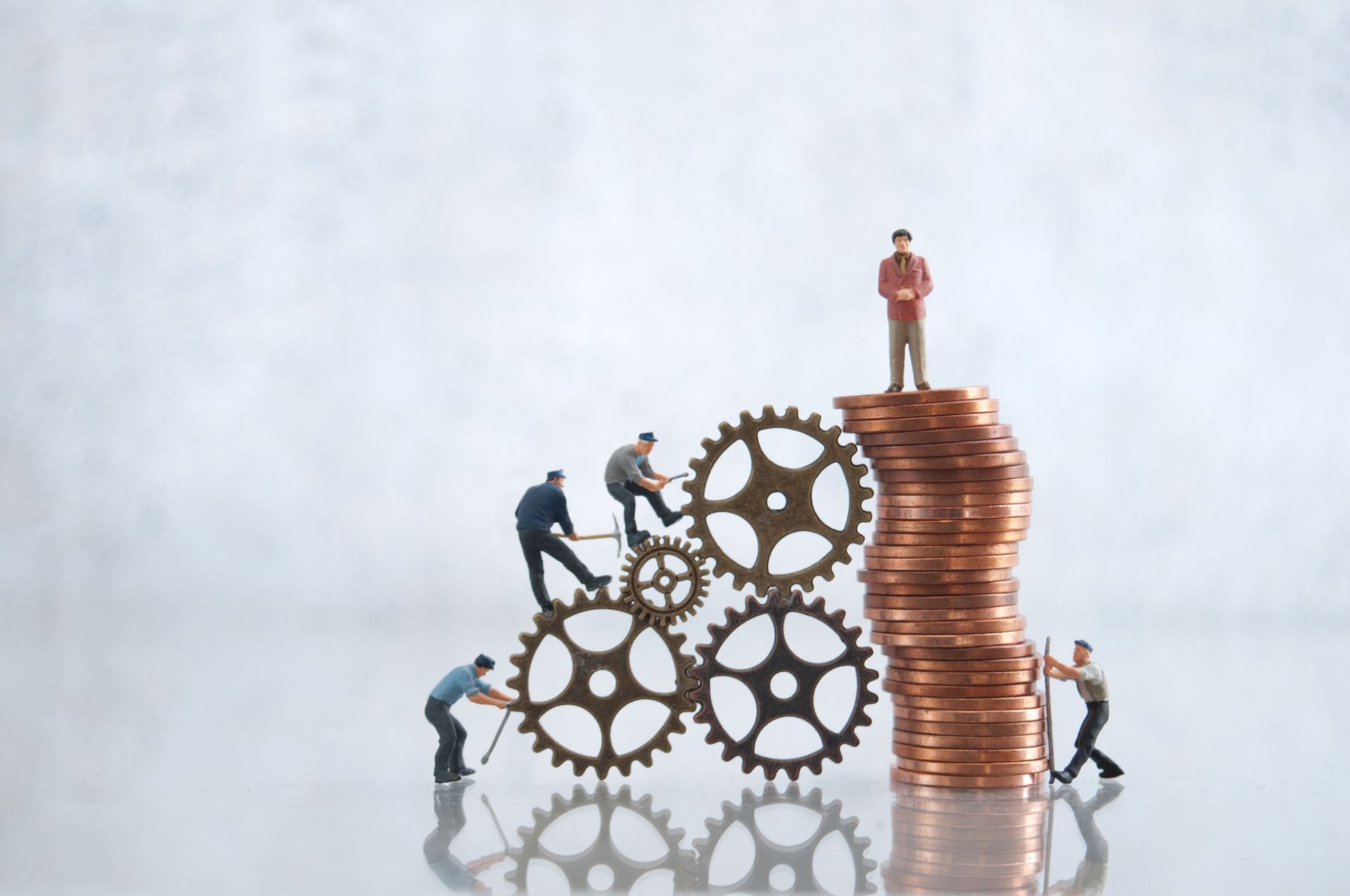
Amazing Success Story. In the last 400 years, humanity has made enormous progress with the rise of Western-born free-market economic systems. This progress has traditionally been measured by the Human Development Indicators below... Life Expectancy. The average global life expectancy has increased from around 30 years in the 17th century to 72 years in 2020. Poverty Reduction. The proportion of people living in extreme poverty (less than $1.90 per day) has declined from over 80% in the 18th century to under 10% in 2020. Literacy Rates. Global literacy rates have increased dramatically, from around 20% in the 18th century to over 85% in 2020. Child Mortality. The global under-five mortality rate has declined from around 300 per 1,000 live births in the 17th century to 39 per 1,000 in 2020. Access to Clean Water. Access to improved water sources has increased from around 20% in the 18th century to over 80% in 2020. Women's Rights. Women's rights and gender equality have made significant progress in the last 400 years, with the expansion of women's suffrage and increasing participation in politics, education, and the workforce. Innovation and Technology. The scientific and industrial sectors have changed the way we live and raised the quality of our life tremendously. Space Exploration. Space exploration has made remarkable progress, with numerous space missions and the establishment of a permanent human presence on the International Space Station. Not all Pretty. There is no question that the human journey through economic development from the Sapiens until now is a resounding success story... The kind of Market Capitalism we ended up with, like any other economic system in history, is by no means perfect. In fact, it has created unprecedented wealth concentration and reshaped our democratic institutions for the worst by allowing Corporations to be considered on the same footing as normal citizens (electoral funding laws). The take-over of our democracies by Corporations has led to cronyism and to an over-representation of private interests in the public sphere which in turn has made and is still making it very hard to address lingering issues of racial inequalities, discrimination of all kinds, abusive incarceration, health and education policies, taxation, immigration, and the likes... The Other Side of the Coin. There's always two sides to a coin. For a reason that I do not comprehend, and maybe because I am in the top 2% beneficiaries of Market Capitalism as practiced today, the huge downside of our socioeconomic system did not really make it to my consciousness until recently. Even if I am informed, and one could argue, concerned enough about social impact to make it a career obsession , I have not seriously explored the other side of the coin before I "retired" from Corporate America... I was too busy being successful at everything. I was "unconscious" and frankly, I regret it. In my next blog entry , I will provide the other side of the coin, the story of how Market Capitalism degraded life on Earth and accelerated what is now know as the Anthropocene or the 6th Mass Extinction.
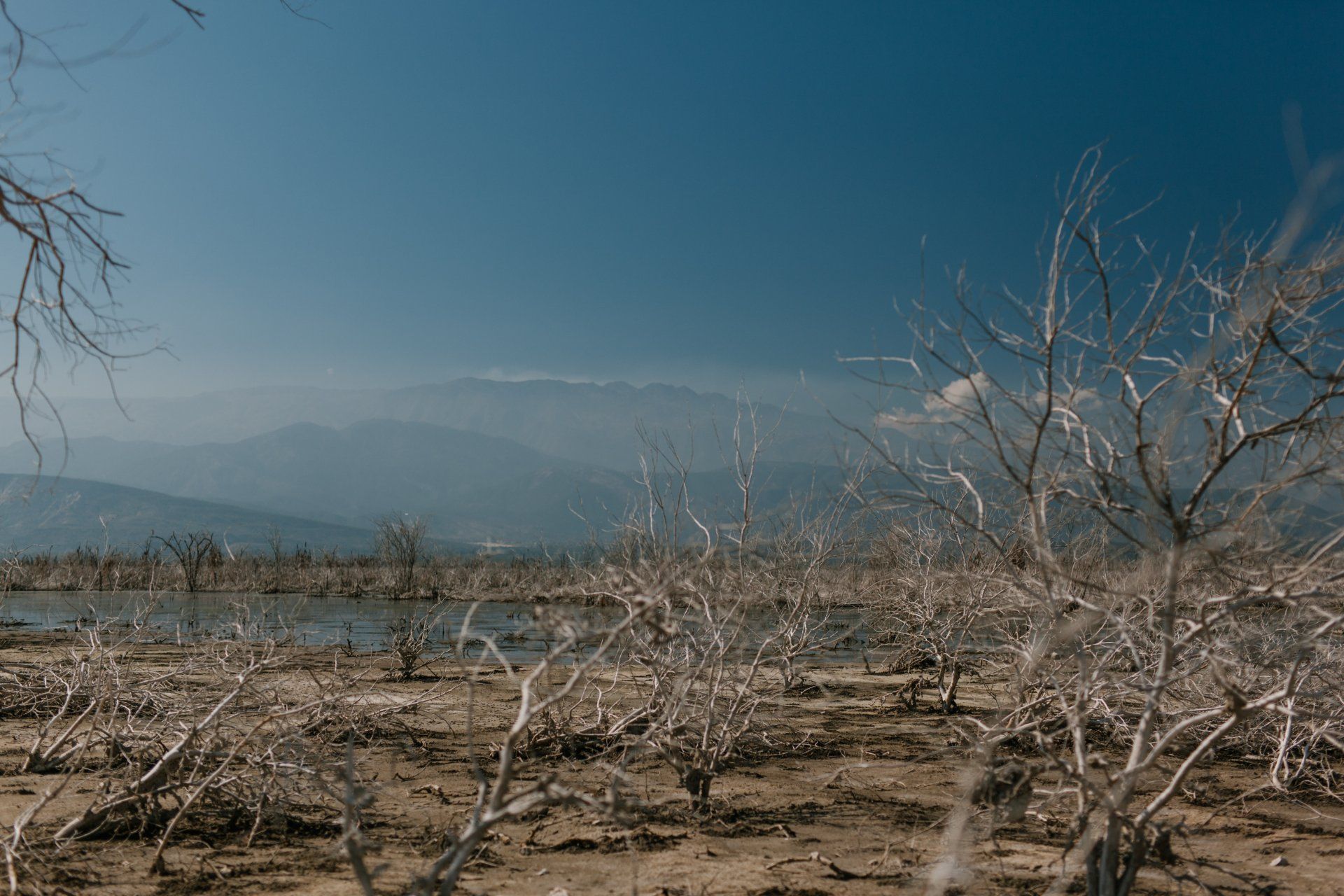
Holocene. Earth is approximately 4.5 billion years old. The last 11,700 years, also known as the Holocene Epoch, have presented us with a set of stable conditions that have allowed for the emergence of the human civilizations we know and cherish. Earth System. There are 9 dynamic systems that, together, deliver the conditions necessary for Life to sustain itself. They were defined as the 9 Planetary Boundaries by the Stockholm Resilience Center, a group of renowned scientists that track the evolution of the Earth System (ES). Anthropocene. Since the mid-20th Century, human activities have started to affect all of those systems, plunging Earth into a very unstable state where changes in multiple systems affect all other systems in very rapid, iterative, unpredictable cycles of change. This Epoch when men start negatively impacting the Earth's System at scale is called the Anthropocene. It is driven by human activities, itself driven by the number of humans on the planet, and by a socioeconomic system that reflects our collective beliefs (the ones that a majority of people agree within a democracy and the ones that a few leaders push down people's throats in autocracies). See below how the Planetary Boundaries, the 9 interconnected systems that provide the basic conditions for life on Earth to exist, are fast deteriorating.
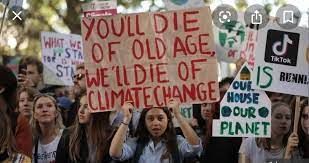
World Economic Forum (WEF), not known to be estranged from our socioeconomic institutions and leaders just published its Global Risks Report 2023. Following is their own summary: "As 2023 begins, the world is facing a set of risks that feel both wholly new and eerily familiar. We have seen a return of “older” risks – inflation, cost-of-living crises, trade wars, capital outflows from emerging markets, widespread social unrest, geopolitical confrontation, and the specter of nuclear warfare – which few of this generation’s business leaders and public policy-makers have experienced. These are being amplified by comparatively new developments in the global risks landscape, including unsustainable levels of debt, a new era of low growth, low global investment and de-globalization, a decline in human development after decades of progress, rapid and unconstrained development of dual-use (civilian and military) technologies, and the growing pressure of climate change impacts and ambitions in an ever-shrinking window for transition to a 1.5°C world. Together, these are converging to shape a unique, uncertain, and turbulent decade to come." Like the 9 Earth's System, our socioeconomic life is multi-dimensional and interconnected. It includes the Environment, Economy, Society, Technology and Geopolitical landscapes. Like Earth's systems, each of those sub-systems is affecting all of them directly or indirectly in a real-time loop, and it is very clear that we are headed towards an unprecedented amount of risk accumulation across all dimensions of our lives. As risk increases and materializes, its cross-contamination makes life harder on most dimensions. We have all started to feel it. It is getting more painful and risky every day. I personally expect the pain to grow exponentially over the next decades.

Beliefs and Worldviews. Beliefs include concrete details about how the world works. Worldviews are a wider concept that refers to how one views the world but has no systematic nature/element to them. Naturally, belief systems are part of worldviews but not the other way around. Our worldviews and associated beliefs have a tremendous impact on our individual reality. They drive where we find ourselves and who we hang out with daily. They are directly linked to the reality that we expose ourselves to our entire life. When a critical mass of people (majority) hold the same beliefs, they become collective beliefs and they have exactly the same deterministic powers as our individual beliefs because, in this case, they help build our institutions and our systems (much harder to change than our individual beliefs). As an example, the monotheist beliefs (800AD) which admitted only one God with one Truth led to the coexistence of the Monarchies and the Roman Catholic Church which, for hundreds of years, controlled both the wealth of nations and the lives of their populations. Nature of Worldviews. At a very high level, biologist Bruce Lipton and political philosopher Stephen Bhaerman, in their book "Spontaneous Evolution", suggested a framework that I find very useful to understand the origin and nature of our worldviews and corresponding beliefs. Fundamentally, they argue that our worldviews come from how much we believe in Spirit vs. Matter as the drivers of reality. Here, Spirit can be defined as an invisible Force or Energy that causes everything to be (a.k.a God, Brahman, Consciousness, Field, Bio-field, Unitary Field, etc.), and Matter can be defined by all that is visible, apprehensible or accessible through the use of our 5 senses. Evolution of Worldviews and Beliefs. In our relatively short time on this planet, our worldviews have constantly evolved and will continue to do so. In the graph below, I show how our worldviews and associated beliefs have evolved over time and how, when you correlate those values with population growth, we seem to have arrived at a perfect storm where a majority of the 7.9 billion people (growing 60M per year) see themselves as separate from the universe, genetically programmed to compete, dominate and amass material wealth. Earth with its limited resources can simply not support the endless appetite for more of so many people, and this is how we end up with the last 100 years being called (by the very scientists that we now believe more than ever before): the 6th Mass Extinction or the Anthropocene.
